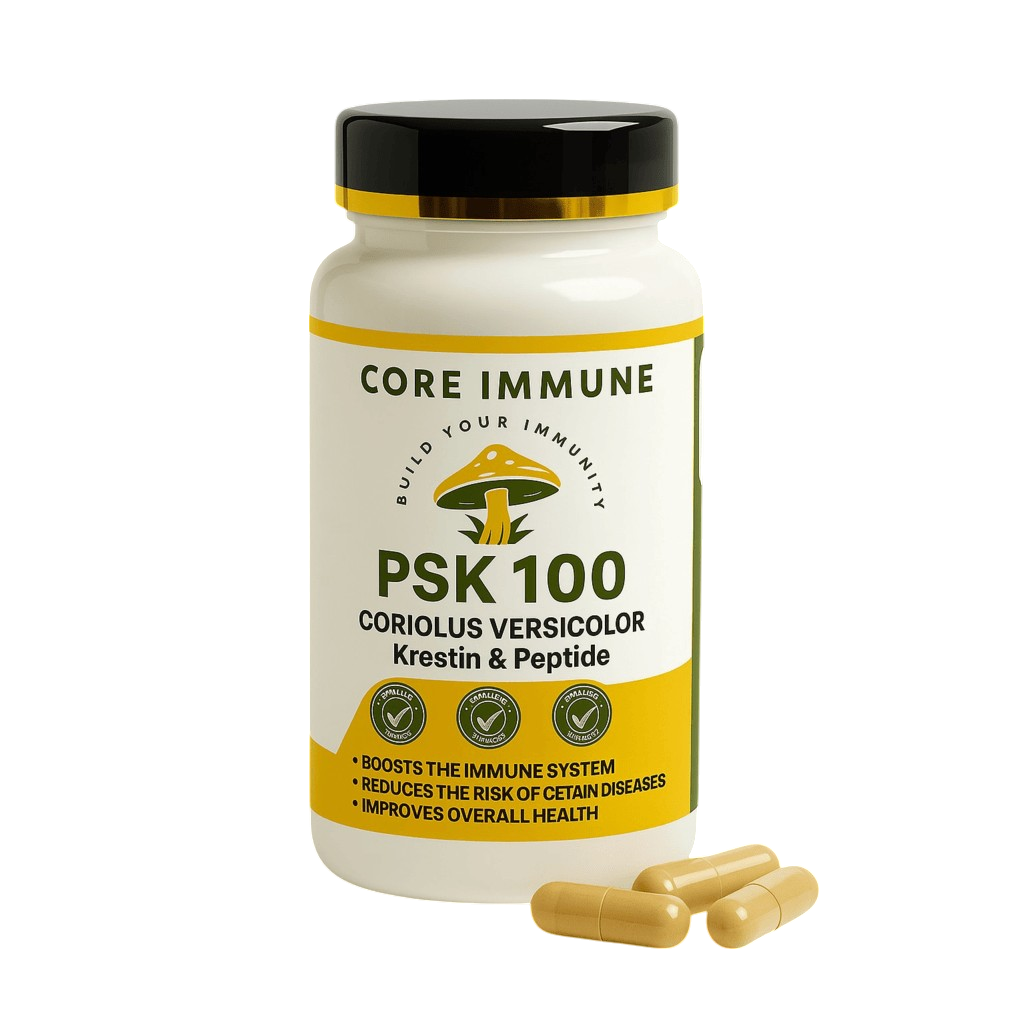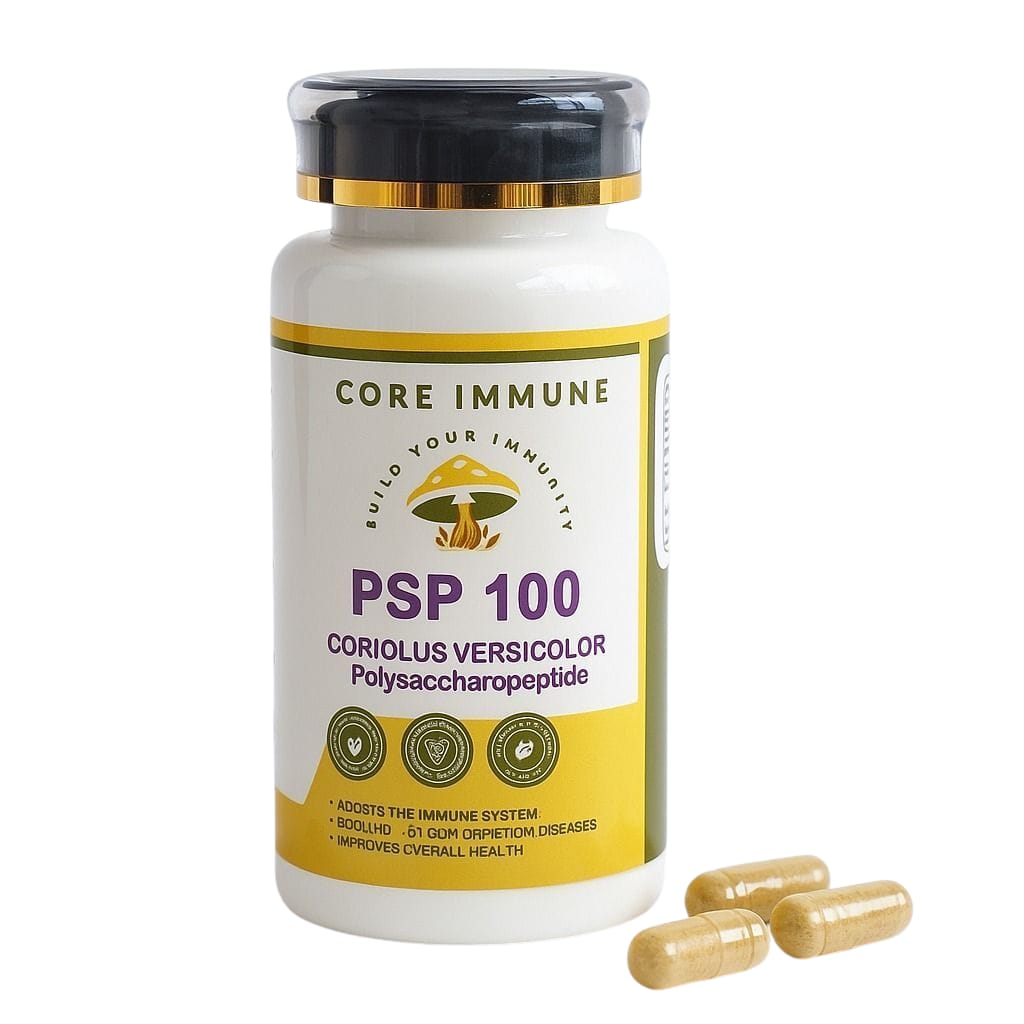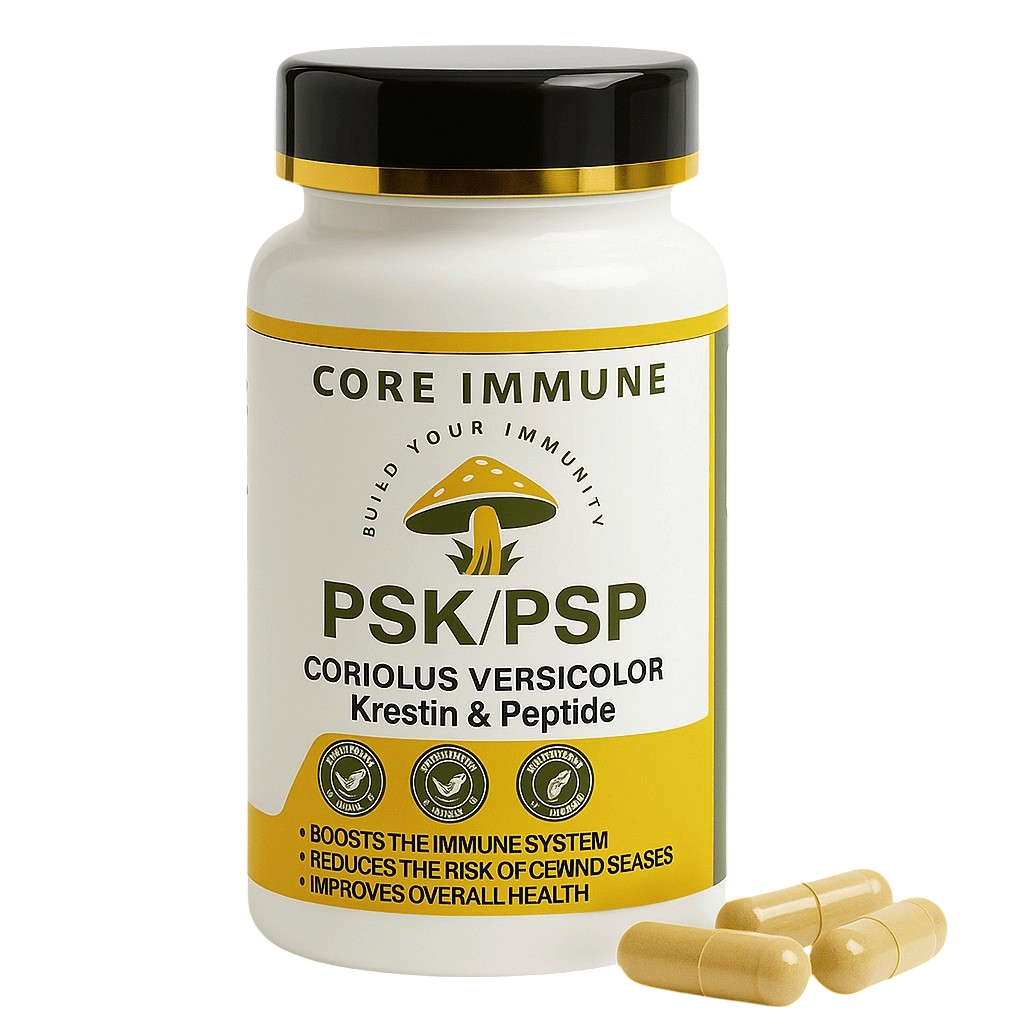Polysaccharides, specifically PSK (Polysaccharide-K, Krestin) and PSP (Polysaccharide-Peptide), are bioactive compounds extracted from the medicinal mushroom Coriolus Versicolor (commonly known as Turkey Tail). These compounds are primarily known for their immune-modulating and anti-inflammatory properties, which have shown benefits in cancer, autoimmune disorders, and chronic inflammatory conditions.
When considering their potential benefits for Premenstrual Dysphoric Disorder (PMDD), the following mechanisms are relevant:
1. Anti-Inflammatory Effects
- PMDD is associated with heightened inflammatory responses. PSK and PSP may reduce inflammation by modulating cytokine production (e.g., IL-6, TNF-α), which could help alleviate mood-related and physical symptoms of PMDD.
2. Stress and Mood Regulation
- Chronic stress and dysregulated immune responses contribute to PMDD symptoms. PSP has demonstrated potential neuroprotective effects, reducing oxidative stress and improving resilience to mental stressors.
3. Hormonal Balance
- While PSK and PSP do not directly affect hormonal levels, their ability to reduce systemic inflammation might positively influence the sensitivity of progesterone and oestrogen receptors, which are implicated in PMDD.
4. Gut Microbiome Modulation
- The gut-brain axis plays a critical role in PMDD. PSK and PSP act as prebiotics, promoting gut health and enhancing the production of beneficial metabolites like short-chain fatty acids (SCFAs), which may indirectly improve mood and reduce symptoms.
Evidence and Use:
There is limited direct research on PSK and PSP for PMDD, but their general effects on inflammation, stress, and the immune system suggest they could be beneficial as an adjunct therapy. Additionally, their excellent safety profile and adaptability in supplement form make them a low-risk option for experimentation under medical supervision.
Recommendations:
If considering PSK or PSP for PMDD:
- Dosage: Consult with a healthcare provider for proper dosing. Typical immune-supportive doses range from 1-3 grams per day.
- Timing: Begin supplementation 1-2 weeks before your PMDD symptoms typically start.
- Combination Therapy: Pair with other evidence-based strategies for PMDD, such as magnesium, omega-3 fatty acids, or cognitive-behavioural therapy.
















